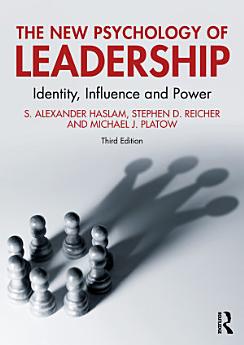The New Psychology of Leadership: Identity, Influence and Power, Edition 3
About this ebook
The book starts from the premise that leadership is never just about leaders. Instead, it is about leaders and followers who are joined together as members of a social group that provides them with a sense of shared social identity. Leadership is understood as the process through which leaders work with followers to create, represent, advance, and embed this sense of shared social identity. The new edition of this bestselling book captures the breadth and depth of ongoing research from around the world that speaks to the power of social identity as a basis for both effective leadership and engaged followership. This approach is highlighted in case studies from the COVID-19 pandemic and as a way of understanding the rise, fall and resurgence of Donald Trump. The book also discusses practical applications that show how leaders can create, advance, represent and embed social identity in ways that are beneficial not only for group engagement and performance but also for health and well-being.
Drawing on real-world examples and rich data sources, this book will appeal to academics, researchers, and students of psychology, business, and management, as well as to practitioners, policy makers, and anyone interested in the workings of leadership, influence, and power.
About the author
S. Alexander Haslam is Professor of Psychology and Australian Laureate Fellow at the University of Queensland, Australia. Alex’s research focuses on the study of group and identity processes in social, organizational and contexts. Together with over 400 co-authors around the world, he has written and edited 16 books and published over 350 peer-reviewed articles on these topics. He is a former Editor of the European Journal of Social Psychology and currently Associate Editor of The Leadership Quarterly. In 2022 he was made a Member of the Order of Australia for service to education and research in psychology.
Stephen Reicher is Wardlaw Professor of Psychology at the University of St Andrews, UK. Steve’s seminal contributions to research on social identity and self-categorization theories stretch back to the 1980s, and have been particularly influential in areas of delinquency, nationalism, crowd behaviour, and political influence. Together with over 200 co-authors, he has written and edited 7 books and published over 300 peer-reviewed articles on these topics. He is a Fellow of the British Academy and of the Royal Society of Edinburgh, and a former Editor of the British Journal of Social Psychology.
Michael Platow is Professor in Psychology at the Australian National University, Australia. Michael has published extensively on intergroup relations, social justice, leadership and social influence. He has published over 150 papers in these areas and written and edited four books. He is a Fellow of the Academy of Social Sciences in Australia and a former president of the International Society of Justice Research.





